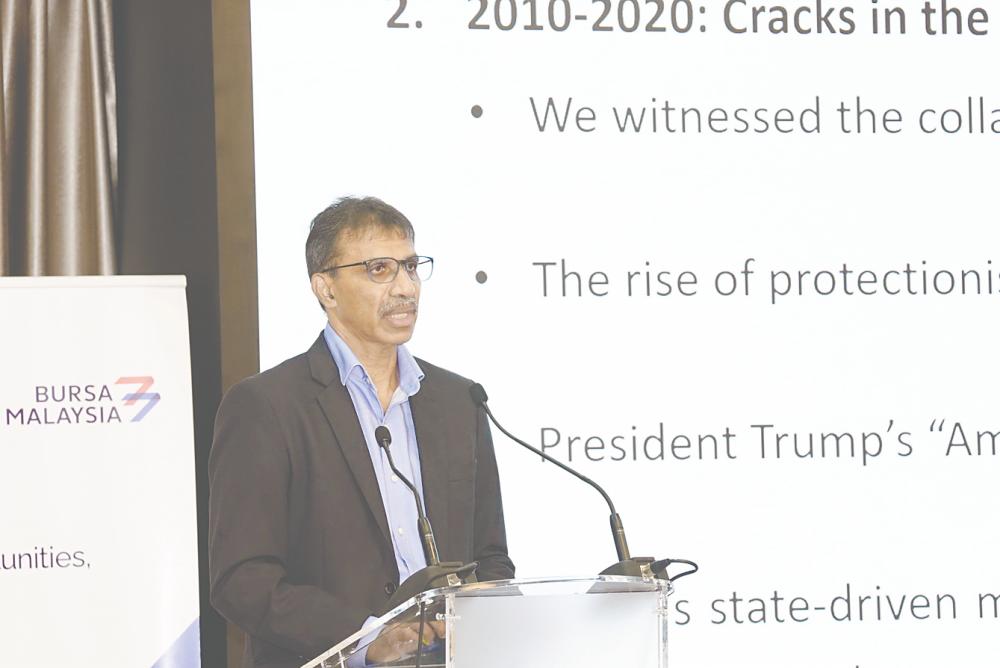KUALA LUMPUR: As one of Southeast Asia’s most open economies and the current Asean Chair, Malaysia must abandon passive diplomacy in favour of a more assertive and strategic economic approach.
Economic Club of Kuala Lumpur (ECKL) research director Dr Anthony Dass said Malaysia is well-positioned to leverage trade frameworks such as the Regional Comprehensive Economic Partnership (RCEP) and the Comprehensive and Progressive Agreement for Trans-Pacific Partnership (CPTPP) to strengthen its role in global trade.
He noted that the international trade landscape is undergoing significant structural shifts driven by supply chain realignment, geopolitical polarisation and uncertain macroeconomic policies from major powers.
“In this environment, a proactive and interest-driven diplomacy is essential. Malaysia can no longer afford to remain a ‘price taker’. We must position ourselves as a ‘role setter’, particularly as we chair Asean this year.
“The country should also emerge as a voice for developing nations advocating for fair and open trade,” Anthony said during a roundtable hosted by Bursa Malaysia, ECKL and CIMB today.
He noted that the country’s Asean leadership comes at a time when the global order is being redefined, which is by supply chain realignments, geopolitical fragmentation, and the retreat of traditional free trade.
“This presents both a challenge and a golden opportunity for Malaysia to step up. “Malaysia must use its Asean chairmanship not just ceremonially, but strategically to set the tone for regional trade policy, strengthen bilateral ties, and reposition Asean as a cohesive, credible economic bloc.”
While Malaysia is one of Southeast Asia’s most open economies, Anthony said, its vulnerability to external shocks, from geopolitical risks to trade retaliation, necessitates a more agile and assertive economic posture.
“Vietnam is aggressively pursuing free trade agreements and digital trade deals. Malaysia must match pace, capitalising on platforms like RCEP and CPTPP, while pushing for digital trade agreements and green economy collaborations,” he remarked.
On tariff-related matters, Anthony stressed the need for pragmatism over populism. “Tariff adjustments must be grounded in impact analysis of domestic industries, not driven by emotional or political pressure,” he said.
Moody’s Analytics Asia-Pacific Economics head and director Katrina Ell said US-imposed tariffs, as part of its foreign policy strategy, have significantly impacted global business.
“Uncertainty over tariff rates and suspension periods adds to business anxiety. For instance, a 24% tariff on Malaysia would be detrimental, while a 90-day suspension may offer short-term relief – but still poses risks due to the lack of clarity.”
She added that Malaysia is a major exporter relative to its economic size, and while the US is not the country’s sole key market, ongoing protectionist policies necessitate broader trade diversification.
“Only about 10% of Malaysia’s trade is with the US, compared to other nations where it can reach up to 40%. Still, the US-China trade war continues to indirectly affect Malaysia’s economy,” Ell noted..









